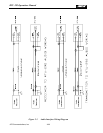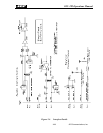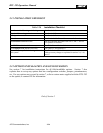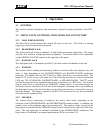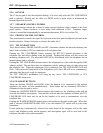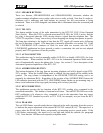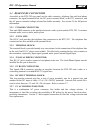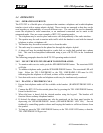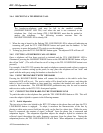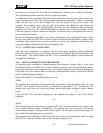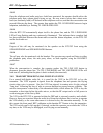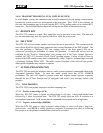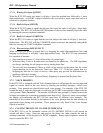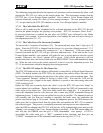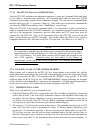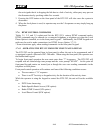
RTU-292 Operations Manual
3.4.4 RECEIVING A TELEPHONE CALL
NOTE
The handset-to-telephone path may be left in the enabled condition
(HANDSET/PHONE LED ON) even when the unit is not connected to the
telephone line. Only one button (TEL LINE/PHONE) must then be pushed to
answer the telephone. The following scenario assumes that the
HANDSET/PHONE LED is already ON.
1. When the ring is heard (or the flashing TEL LINE/PHONE LED is observed) indicating an
incoming call, push the TEL LINE/PHONE button and speak into the handset. It isn't
necessary to press the handset PTT switch to use the telephone.
2. To hang up, press the TEL LINE/PHONE button again. The adjacent LED will turn off.
3.4.5 PUTTING A TELEPHONE CALL ON HOLD
Once a telephone call has been received or initiated and the TEL LINE/PHONE LED is
illuminated, pressing the HANDSET/PHONE button or the SPEAKER/PHONE button will put
the call on “hold”. (The call will not be cut off as long as the TEL LINE/PHONE button is not
pressed.)
For example, if the RTU-292 operator has made a telephone connection and wishes to contact a
radio party to continue setting up the patch, he may place the telephone call on “hold” and
speak with the radio party using the handset as described in 3.4.6.
3.4.6 USING THE HANDSET WITH THE RADIO
Pressing the HANDSET/RADIO button will connect the handset to the radio's audio lines
(associated LED will be on). The receive audio will be heard in the earpiece, and when the
radio is keyed (via the handset or front panel key switches) the handset mic audio will be
routed to the transmitter. The SPEAKER/RADIO pushbutton may also be used to monitor
radio receive audio via the RTU-292's front panel speaker.
3.4.7 CONNECTING THE RADIO TO THE TELEPHONE LINE
To patch the radio to the telephone line, push the TEL LINE/RADIO button to ON. This will
cause the adaptive hybrid to operate in the following manner:
3.4.7.1 Initial Adaptation
The two-wire to four-wire hybrid in the RTU-292 adapts to the phone line each time the TEL
LINE/RADIO button is engaged. To adapt, it measures the characteristics of the line by
placing a white noise source (built into the unit), on the line for a short time. While the noise
burst is connected, the amount of signal “reflected” from the phone line is measured and
adaptation begins. The adaptation algorithm adjusts the adaptive hybrid to minimize the
reflected signal, throughout the audio frequency spectrum, from the phone line. During the
adaptation process, the TEL LINE/RADIO LED will flash. When adaptation is complete, the
JPS Communications, Inc.
3-6



